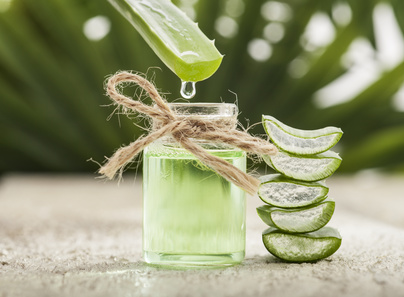 The many kombucha health benefits you’ve probably heard include better immune function and less hair loss, along with weight loss, lower blood pressure and better digestion. Does that ring a bell? It does for a lot of folks, who’ve propelled sales of kombucha to immense popularity in the United States and abroad.
The many kombucha health benefits you’ve probably heard include better immune function and less hair loss, along with weight loss, lower blood pressure and better digestion. Does that ring a bell? It does for a lot of folks, who’ve propelled sales of kombucha to immense popularity in the United States and abroad.
But is there any weight behind these purported kombucha health benefits, and is it safe to drink?
The short answer is we don’t know. Kombucha is a buzzword in the health community at the moment – but so are elevation training masks, which many researchers debunk as quackery.
The kombucha health benefits most people associate with the drink are largely anecdotal.
There are risks with kombucha as well, ranging from liver damage to lactic acidosis. At least one person has died from drinking kombucha since the 1990s – casting doubt on whether the kombucha health benefits are worth these risks in the first place.
What is Kombucha?
Kombucha is a mix of yeast, sugar and black tea. Some people call it ‘mushroom tea’ because it appears cloudy at the top. There is no mushroom in kombucha though – it’s a fermentation process in which the ingredients are mixed and then set aside for at least a week.
During fermentation, acids and bacterias form in the drink, along with trace amounts of alcohol. The drink that results is high in acids, sugar, vinegar, B vitamins, antioxidants and other chemical compounds that have put the suggested kombucha health benefits in many a spotlight.
Kombucha is hardly a new drink. It’s been around for almost 2,000 years and is originally from China, from where it spread to Japan and Russia.
Fast forward to the present day and it’s all the rage in the United States and abroad. But is this justified?
The Purported Kombucha Health Benefits
Advocates of the drink say kombucha helps digestion, boosts energy and rids the body of toxins. As well, they say kombucha helps the immune system and assists with weight loss, reduces blood pressure and can even lower your risk of some diseases.
Unfortunately, there is not much evidence to support this claims. And it’s loaded with sugar and caffeine.
It’s true that kombucha has probiotics – the ‘good bacteria’ that help the gut. Kombucha has B vitamins as well, so it does have nutrients that make it appealing. Some research suggests kombucha may help fight body-aging free radicals because of its high antioxidant content. This research has been done primarily in animal studies, however, and have not been verified in research on humans.
 We don’t know if it’s safe, either. Kombucha may have health risks that should be considered.
We don’t know if it’s safe, either. Kombucha may have health risks that should be considered.
Risks of Kombucha
Brewing kombucha means letting bacteria grow into a liquid you’ll drink later. Some of that bacteria can turn into mould or harmful toxins if not done properly.
Kombucha is linked to a death that occurred in 1995 and ailments linked to the drink include liver problems, lactic acidosis, allergic reactions and nausea.
At this time, the non-profit group Consumer Reports does not recommend drinking kombucha because of the risk linked to it. The FDA takes a slightly more optimistic approach and says kombucha is safe when made properly.
What Experts Say about Home Brewing Kombucha
While we can’t advise you on whether you should drink or make kombucha, experts suggest if you’re going to make kombucha at home, it’s probably good to use glass, stainless steel or plastic containers.
Keep things sanitary – both the equipment you use and your hands, if you make it yourself.
You can home brew kombucha either with a ‘kombucha mother’ starter or with a starter sample to grow a new colony of bacteria and yeast. Some brands are pasteurized to kill pathogens. Most home brews, however, are drunk raw and unpasteurized.
Some experts contend home brewed and unpasteurized kombucha made in non-sterile conditions is more likely to lead to unhealthy bacteria getting into it. Some even say to avoid home-brewed kombucha entirely, and to opt for a commercial product instead.
In January 2010, Whole Foods removed kombucha from its stores because of concerns its alcohol content exceeded the legal limit of 0.5%. Since then, kombucha suppliers have met this standard and Whole Foods carries it again.
So Does Kombucha Have Health Benefits?
 To summarize, the kombucha health benefits you’ve heard about may be partly true, but we don’t know at present. There is simply no evidence to back them up.
To summarize, the kombucha health benefits you’ve heard about may be partly true, but we don’t know at present. There is simply no evidence to back them up.
Unpasteurized kombucha may increase your risk of harmful bacteria in the drink, as well. That’s problematic, because many people drink kombucha for probiotics – the beneficial bacteria that may help the gut.
There is no evidence to support kombucha health benefits in 2017. But there is plenty to suggest that probiotics are good for digestion and can help the immune system, among many other health benefits.
Chew on that a little and there may be a healthier choice to kombucha – or at least a proven food with the kombucha health benefits that have you reading this article.
The food: yogurt.
Moving Forward…
Of course, if you’ve got your heart set on kombucha and are determined to see what the fuss is about, experts suggest that most healthy people can probably drink up to four ounces of kombucha each day.
Pregnant women, the elderly, children and people with a compromised immune system should probably avoid it.
Drink kombucha in moderation, too, if you choose to consume it.
While it’s tempting to think the kombucha health benefits you’ve heard about warrant trying the beverage, remember we don’t know if they’re true.
Don’t drink kombucha for health benefits. Try the beverage for what it is: a pleasant drink when consumed in moderation. Opt for a pasteurized kombucha sold commercially rather than making your own – and consult with your doctor just to be on the safe side.
It’s hard to say if kombucha truly has health benefits, but it can certainly make your day a little more enjoyable.




